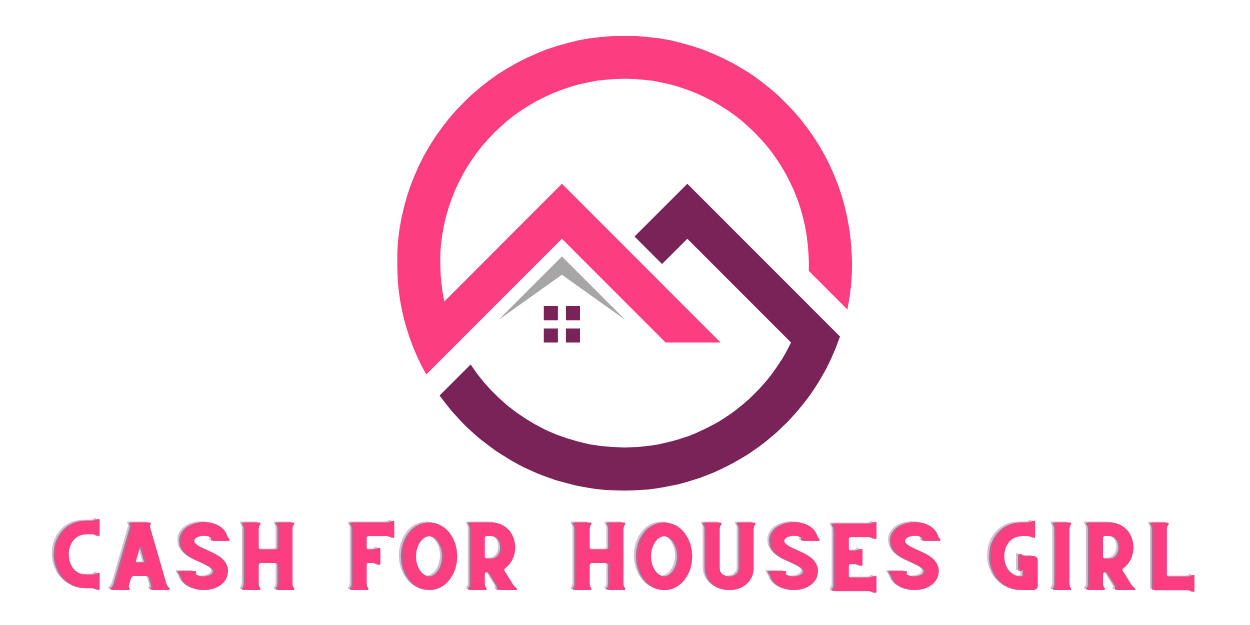
Understanding the Real Estate Market in Virginia

To make the most money when selling distressed property “as is” in Virginia’s real estate market, you need to know a lot about how the local market works. Virginia’s real estate market is made up of a wide range of economic factors, regional differences, and different buyer preferences.
Richmond and Northern Virginia are two of the state’s urban centers where property values are rising quickly. The state also has rural areas where the market is very different. Sellers can use these differences to their advantage when trying to sell their distressed properties to people who are looking for investment opportunities or affordable housing.
The Virginia real estate market is affected by a number of things, such as government and military presence driving economic growth, changing interest rates making it harder for buyers to afford homes, and seasonal trends changing how people buy homes. Sellers can better predict changes in demand and price their distressed properties competitively to maximize profit margins if they stay up to date on these factors.
Navigating Short Sales and Foreclosures in Virginia’s Housing Market
Learn the ins and outs of the Virginia real estate market, including foreclosures and short sales, to get the most money out of selling troubled properties “as is.” Sellers and investors familiar with the ins and outs of Virginia’s short sale and foreclosure procedures can take advantage of some special opportunities in the state’s housing market. To avoid foreclosure and limit financial losses, sellers can pursue a short sale, in which the sale price is lower than the outstanding mortgage balance. This type of sale usually requires the approval of the lender.
Conversely, foreclosures occur when lenders take back properties due to nonpayment of loans, which opens doors for bargain hunters. Investors seeking bargain fixer-uppers are drawn to sellers who opt to sell distressed properties “as is” rather than make expensive repairs or renovations.
To make informed decisions in Virginia’s ever-changing housing market, it’s essential to understand the local rules and regulations that guide these processes. Partnering with experts such as attorneys or cash home buyers in Virginia and surrounding states can help you save time and energy while navigating the challenges of selling distressed properties.
Legal Considerations When Selling a Distressed Property in Virginia
When selling a distressed property in Virginia, it’s important to know the legal issues that could affect your profits. Sellers in Virginia need to know the state’s disclosure laws, which say that they must tell buyers about any known major problems with the property.
To avoid getting in trouble with the law, it’s important to make sure that all the information you give is correct and true. Also, sellers should know about Virginia’s foreclosure process and timelines if the property is about to go into foreclosure. These can affect the sale of the property.
If you’re dealing with a short sale or liens on the property, working with a real estate lawyer or an experienced agent who knows how to handle distressed sales can help you get through tough situations. Sellers must also follow federal rules, such as those that say they must tell buyers about lead-based paint if there is any.
Knowing these legal things not only helps you avoid possible liabilities, but it also helps you do business more smoothly in accordance with Virginia’s real estate laws.
Financial Options for Homeowners with Distressed Properties
Virginia homeowners should learn about all the different ways to make money when dealing with distressed properties. This will help them get the most out of their investments. Selling a distressed property “as is” instead of making expensive repairs or renovations can save you time and money.
Real estate investors are looking for deals in Virginia’s competitive real estate market, and they are often willing to pay cash for homes right away. Sellers can draw them in by doing this. People who are having trouble paying their mortgage may be able to avoid foreclosure by talking to their lenders about the terms of a short sale.
Homeowners aiming to maximize profits from their property can benefit greatly from working with real estate professionals who specialize in distressed homes, particularly when it comes to pricing strategies and staying aligned with market trends. By also understanding local tax implications and consulting financial advisors, sellers can make informed decisions about managing debts or leveraging equity. To learn more about the steps involved, see how our process works.
Key Steps to Prepare a Distressed Property for Sale
Focusing on the most important steps can help you make the most money when getting a distressed property ready to sell in Virginia’s real estate market. Begin by doing a full inspection to find any major problems that might turn off potential buyers, like plumbing issues or damage to the building itself.
Selling “as is” usually means not doing any costly repairs, but fixing up small cosmetic problems like cleaning and decluttering can make the property more appealing. Getting all the right paperwork, like title deeds and disclosure forms, makes the transaction go more smoothly.
It’s important to price the property competitively. Look at sales of similar properties in the area to find a price that is appealing and reflects the current market conditions. High-quality photos and detailed listings that show off the property’s potential can help you market it well and get investors interested in making money.
Partnering with an experienced professional who specializes in distressed properties can make it easier to navigate Virginia’s legal requirements while also aligning with what buyers are looking for. If you’re considering selling, Cash For Houses Girl can help guide you through the process.
The Benefits of Renovating Before Selling a Distressed Home
Before selling a distressed property in Virginia’s real estate market, consider renovating it to increase its appeal and potential profits. By making necessary repairs and improvements, sellers can attract a wider range of buyers who would otherwise be turned off by the home’s initial condition.
Renovations can result in higher offers because buyers are often willing to pay more for move-in-ready homes that do not require immediate repairs. Furthermore, updating key areas such as kitchens and bathrooms can increase the property’s value and make it more competitive against other listings.
Enhanced curb appeal through exterior upgrades is also important in making a good first impression, which can increase buyer interest. Investing in energy-efficient features can entice environmentally conscious buyers while potentially lowering holding costs due to improved sales efficiency.
Strategic renovations in Virginia’s real estate market can increase marketability and reduce time on the market.
How to Price Your Distressed Property Competitively

When selling a distressed property “as is” in Virginia’s real estate market, competitive pricing is essential for attracting buyers and maximizing profits. Understanding the local market conditions and recent sales of comparable properties can help you set an appropriate price.
It is critical to thoroughly assess the condition of your property, taking into account structural issues, needed repairs, and cosmetic updates. Consulting a real estate professional with experience in distressed properties can help set a competitive price that reflects market demand and the property’s specific challenges.
Pricing slightly below market value may attract investors seeking lucrative opportunities, leading to a bidding war and potentially higher final sale prices. Using online platforms and auction sites specifically for distressed properties can also reach a larger audience willing to buy homes ‘as is.’ By carefully analyzing these elements, you can strategically position your property to attract serious buyers while maximising your potential return on investment.
Marketing Tips for Attracting Buyers to Distressed Properties
To attract buyers to distressed properties in Virginia’s real estate market, employ strategic marketing techniques that highlight their unique investment opportunities. Begin by emphasizing the property’s high return potential and value proposition in comparison to other market options.
Use online platforms such as popular real estate websites and social media channels to rapidly reach a large number of people. High-quality photographs and virtual tours can highlight the property’s features, helping buyers see its potential despite any flaws.
Crafting strong listings with keywords like “investment opportunity,” “fixer-upper,” and “as-is” can draw in investors searching for profitable projects. Building connections within your local network can also help you reach buyers who are specifically interested in buying a house in bad condition.
Highlighting the proximity to desirable areas or future development projects can increase appeal, making these properties appealing even in their current condition.
How to Stage a Distressed Property to Maximize Buyer Interest
In Virginia’s real estate market, staging a distressed property well can greatly increase buyer interest and potential profits. Start by making the outside of the house look better, since first impressions are very important.
Simple things like cutting back overgrown hedges and adding new mulch can make a big difference in the look of your yard. Inside the house, get rid of extra stuff in each room to make it feel bigger and help buyers picture their own things in the space.
Using light, neutral colors to balance out the color scheme can also make rooms feel bright and welcoming, which can help them appeal to more people. Fix any small problems that could make the house look worse, like fixing leaky faucets or patching up small holes in the walls. These small investments can pay off big time.
Also, deep cleaning every room makes sure that potential buyers see the home as well-kept even though it is in bad shape. Placing furniture in a strategic way can help draw attention to important parts of the property while keeping the flow open between different areas.
Sellers can get more interested buyers and possibly higher offers, even when selling “as is,” by showing a distressed property in the best light possible without spending too much on repairs.
Common Challenges in Selling a Distressed Property and How to Overcome Them
The real estate market in Virginia presents a unique set of obstacles when it comes to selling a distressed property. Attracting buyers who are willing to purchase a property “as is,” particularly when it may require substantial repairs or renovations, is one of the primary challenges.
The visible issues and potential hidden problems associated with distressed properties are a significant deterrent to many potential buyers. In order to circumvent this, sellers should emphasize the property’s potential value and location advantages, which can be appealing even in a “as is” sale.
Another obstacle is the proper pricing of the property to reflect its condition while remaining competitive in the market. A realistic yet appealing price point can be established by conducting a comprehensive market analysis and consulting with real estate professionals who specialize in distressed properties.
Furthermore, the successful negotiation of legal and financial obstacles, including unpaid taxes or liens on distressed properties, necessitates meticulous attention to detail and frequently the assistance of legal professionals. Sellers can optimize transactions and reduce delays by addressing these concerns at the outset of the selling process.
Cash buyers or investors seeking profitable ventures in Virginia’s diverse real estate landscape may also be attracted by marketing strategies that emphasize quick closing times and potential investment opportunities.
Differences Between Auctioning and Traditional Sale of Distressed Homes
When selling distressed property in Virginia’s real estate market, understanding the differences between auctioning and traditional sales is critical for profit maximization. Auctioning a distressed home often attracts investors looking for quick transactions and potentially lower prices because properties are sold “as is” with few contingencies.
This method can speed up the sale process, lower holding costs, and provide immediate liquidity. In contrast, a traditional sale may entail listing the property on the open market, where buyers typically expect inspections and negotiations on repairs or price adjustments.
While this approach may result in higher offers by appealing to a larger audience, it also increases the sales timeline due to more complex closing processes. When dealing with distressed properties in Virginia, sellers must weigh these factors: speed versus potential profit to determine which strategy will best meet their financial objectives.
The Role of Inspections and Appraisals in Selling Distressed Real Estate
When selling distressed property “as is” in Virginia’s real estate market, inspections and appraisals are critical components of the transaction process. Inspections give potential buyers a clear picture of the property’s condition, revealing any structural issues or needed repairs that may influence their purchasing decision.
This transparency can make negotiations go more smoothly by setting realistic expectations for both parties involved. Appraisals determine the fair market value of distressed properties, ensuring they are priced competitively compared to similar properties in the area.
Appraisers use a variety of factors, including location, property size, and current market trends, to determine an accurate valuation. Understanding these aspects allows sellers to position their properties more effectively in Virginia’s competitive real estate market.
Inspections and appraisals both help to build buyer confidence and can speed up the sale process by reducing unexpected complications during the closing.
Understanding Buyer Motivations When Purchasing Distressed Properties
Understanding buyer motivations is crucial when selling distressed properties “as is” in Virginia’s real estate market. Investors and homebuyers are often attracted to distressed properties due to their potential for high returns on investment and the opportunity to acquire real estate at a lower cost.
Numerous purchasers are seeking fixer-uppers that they can renovate in order to either resell at a profit or personalize as their own residence. Demand is also stimulated by the competitive nature of Virginia’s real estate market, as buyers pursue any possible advantage, including the acquisition of properties with defects that could discourage other bidders.
Furthermore, certain purchasers are incentivized by the opportunity to acquire properties in desirable neighborhoods at a reduced cost, with the expectation of future appreciation following the implementation of improvements. Recognizing these motivations enables sellers to effectively market distressed properties and engage potential buyers who perceive the property’s latent value and future possibilities, despite its current imperfections.
Post-sale Considerations and Moving Forward After Selling a Distressed Property
After successfully selling a distressed property “as is” in Virginia’s competitive real estate market, it’s critical to focus on post-sale considerations to maximize profits and lay the groundwork for future investments. Understanding the tax implications of the sale is essential, as capital gains taxes may be applicable based on your profit margin. Using a capital gains tax calculator can help you estimate potential tax liabilities early, allowing for more accurate financial planning and fewer surprises at filing time.
Consulting with a real estate attorney or tax advisor who is familiar with Virginia’s regulations can provide useful information and assist you in effectively managing these obligations. Furthermore, assessing your overall financial situation following the sale is critical for planning future investment opportunities.
This could include reinvesting profits in other real estate projects or investigating alternative investment strategies to diversify your portfolio. Networking with local real estate professionals can provide you with new perspectives and potential partnerships that can help your business grow.
Keeping detailed records of all transactions related to the sale of distressed property ensures compliance and assists with future audits or legal inquiries. By carefully addressing these post-sale steps, you can lay a solid foundation for long-term success in Virginia’s dynamic real estate market.
How to Sell Distressed Property?

Selling distressed property in Virginia’s real estate market can be a profitable endeavor if executed strategically. In order to optimize your profits, it is imperative to comprehend the specifics of selling distressed properties “as is.” Initially, perform a comprehensive property evaluation to identify any significant issues that could potentially impact its market value.
Showcasing the property’s potential by highlighting its location advantages or redevelopment opportunities can make it more appealing to buyers. Partnering with experienced professionals, such as investor home buyers in Alexandria and other cities in Virginia, can provide valuable insights and connections for those looking to maximize opportunities in distressed property sales.
It is imperative to price the property at a competitive level in order to attract buyers who are interested in renovation projects. Effectively marketing through local real estate listings and online platforms will enhance visibility and attract prospective buyers.
Additionally, the selling process can be expedited by collaborating with cash buyers or providing flexible financing options. In the thriving real estate market of Virginia, it is possible to successfully sell a distressed property and maximize profits by concentrating on these strategies.
What Are Some Examples of Distressed Property Transactions?
Distressed property transactions in Virginia’s real estate market can take many different forms, with each offering unique opportunities to maximize profits. One common example is a foreclosure sale, in which lenders sell properties after borrowers default on their mortgage payments.
Investors frequently seek out these properties in order to buy them at a low price and then sell them “as is” for a profit. Another example is short sales, in which homeowners negotiate with lenders to sell their property for less than the remaining mortgage balance.
This type of distressed property transaction enables investors to buy homes below market value and resell them without undergoing extensive renovations. Furthermore, probate sales take place when heirs quickly sell inherited properties that may require repairs or updates, providing another opportunity for investors to buy “as is” at a discount.
Bank-owned properties, also known as REO (Real Estate Owned) homes, are significant examples of distressed transactions; banks have repossessed these properties and are frequently sold at a discount. Understanding distressed property transactions in Virginia allows investors to enter the real estate market strategically, maximizing profits while navigating the complexities of selling properties “as is.”
Helpful Virginia Blog Articles
- Sell a Condemned House in Virginia
- Home Sale Contingencies In Virginia
- Real Estate Attorney Fees For Selling Your Home In Virginia
- Avoid Closing Costs When Buying A Home In Virginia
- How To Sell A House With Mold in Virginia
- Homeowners Insurance When Selling a House in Virginia
- Selling Distressed Property ‘as Is’ In Virginia

| VIRGINIA BEACH | COMPANY | MLS | LOANS | MORTGAGE DEBT | |
| INSURANCE | WATER DAMAGE | FLOODED | FLOODS | AMERICA | |
| TERMITE | ROOF | RICHMOND, VA | RICHMOND, VIRGINIA | MOLD | LITIGATION |
| HOME INSPECTION | FHA | IBUYERS | INSPECTOR | FLIPPERS | FLIPPERS |
| EXPENSES | CUSTOMER | A CASH BUYER | FOR CASH IN | A CASH OFFER | GET A CASH OFFER |
| A REAL ESTATE AGENT | AS IS IN VIRGINIA |
